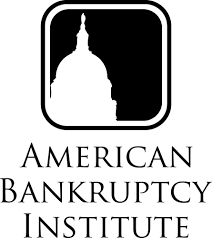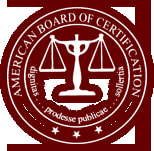|
STUDENT LOANS IN CHAPTER 13 – A PRIMER
Assuming you do not qualify for a hardship discharge (either offered by the government or through a Chapter 7), Chapter 13 can be a successful strategy for dealing with this type of debt. Often, when explaining the role of Chapter 13 in student loan management, potential clients seem confused and say 'I didn't think you could put student loans in bankruptcy'. The answer is complicated, and depends what is meant by 'putting' student loans 'in bankruptcy'. In Chapter 13, you can certainly do the following:
THE LOW INCOME FILER Many clients with student loans have issues paying what the creditor would like you to pay. Even in an income contingent plan, the hard realities of life, like raising children, or cost of living increases, can get in the way. Chapter 13 can make sense because in those cases, you can pay as little as 0% back to creditors while you're in the case. This has bad and good consequences. The bad is that unlike most other types of unsecured debts like credit cards or medical bills, the student loan debt continues to accrue interest. That means, assuming you don't pay anything towards your student loans while in the case, you'll actually owe MORE when you're out of the case in 3 to 5 years. While this is of little consequence if there's little to no chance you'll be paying them off in your lifetime due to age or illness, for the young filer, it could make things worse in the future. A smart move in some of those cases, where the student loans make up the bulk of your creditor claims, is to pay extra into your case to prevent 'negative amortization', which is a fancy way of saying it will prevent your loan from growing while you're in the case. THE HIGH INCOME FILER Some clients have so much income that they can pay a high percentage of their debt off in the Chapter 13. Where they have a large portion of their debt as student loan debt, it actually makes sense to pay this high amount in because it will tackle the debt and prevent it from growing. Additionally, the student loans are paid at the expense of the other creditors so a certain extent. For example, if you owe $100,000 in student loans, and $100,000 in credit card debt, and you are in an 80% plan, you'll wind up paying $80,000 to your student loans, and $80,000 to your credit card creditors. If you did not have student loans, you'd almost certainly wind up paying $100,000 to your credit card creditors, so having them in the case pulls money that would go to them and sends it to a debt that is non-dischargable. THE 100% TO CREDITORS FILER (aka the VERY high income filer) In this case, while student loan interest continues to accrue, often unsecured creditors interest rates are set either at zero, or close to zero (perhaps 3%), which is often more advantageous than prior to filing. But oftentimes Debtors in these plans want to pay their student loan debt outside of the plan. This usually does not make sense. Here's why. If your ability to make payments in the plan goes down, the student loans receive a share and can reduce the amount paid to credit card and medical bill debt. Further, where interest rates for student loans exceed or beat investment averages (i.e. 8%), paying these down makes good financial sense. That being said, you may want to talk to a financial advisor to be certain as to whether the time is right to pay them off. ALTERNATIVE PLAN STRUCTURES
0 Comments
Leave a Reply. |
AuthorHi! I'm American Board of Certification board-certified attorney Jesse Sweeney. I've been practicing bankruptcy for over 16 years and I thought this would be a great way to give you some insight into the process in a way that you can understand, without all the lawyer-speak that can make things confusing. Let me know if you have questions! Archives
May 2023
Categories |
 RSS Feed
RSS Feed


